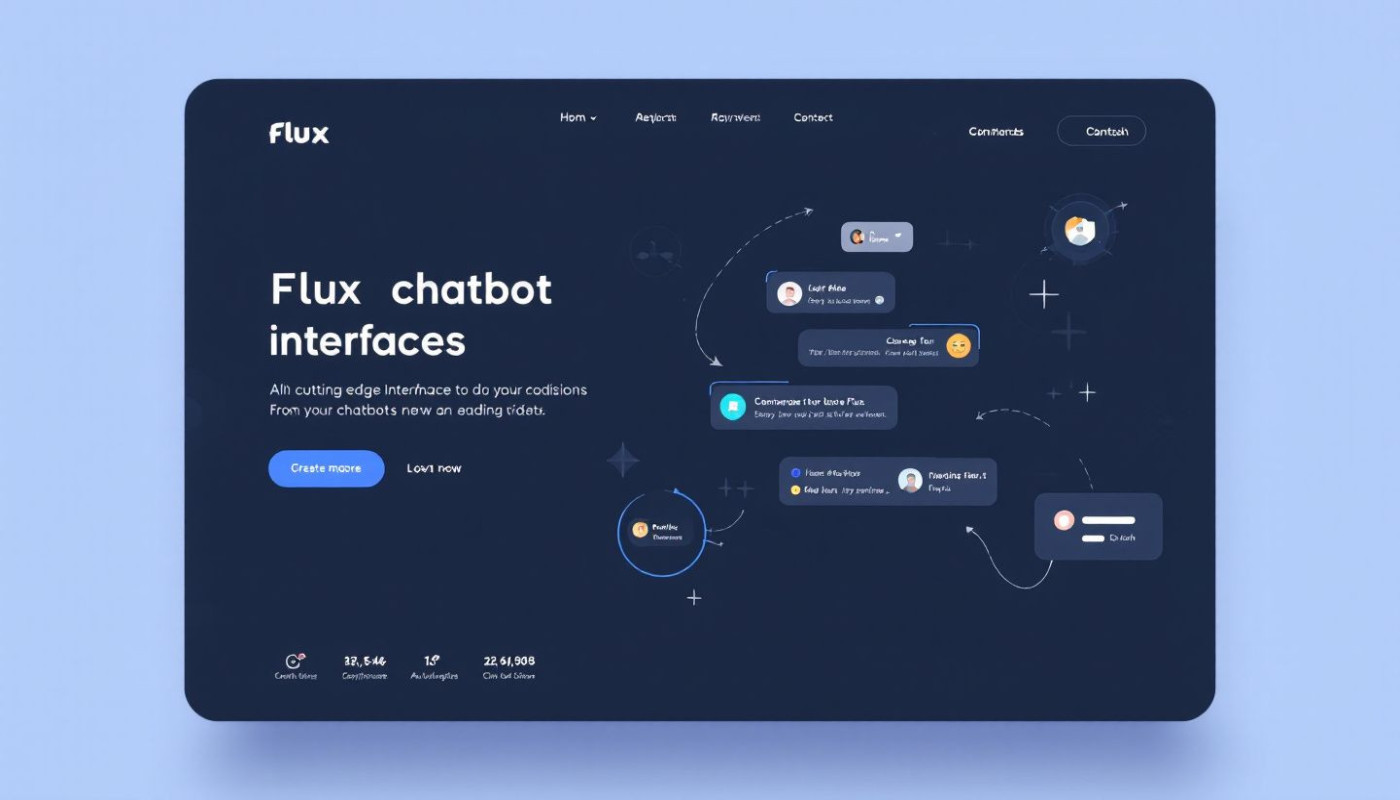Table of contents
In an era where artificial intelligence transforms various facets of life, the emergence of non-coding platforms for AI chatbot creation is a game-changer. These platforms are revolutionizing the way individuals and businesses alike can engage with technology, breaking down the barriers to entry in the AI field. This exploration delves into how these innovative platforms are making it easier than ever to create sophisticated chatbots, leveling the playing field for all. Join in to uncover the significance of non-coding platforms in the democratization of AI chatbot development.
Unveiling the Democratization of AI
The term 'democratization' when applied to artificial intelligence (AI) refers to the broadening access and control over AI technology, thereby enabling a diverse range of individuals and organizations to leverage its capabilities. Non-coding platforms are at the forefront of this movement, revolutionizing the landscape by simplifying the creation of AI chatbots. The evolution from being a developer-centric domain to an inclusive environment means that AI technology is no longer the sole province of those with extensive programming skills. These user-friendly platforms facilitate AI accessibility by providing intuitive interfaces that allow users to build, train, and deploy AI chatbots without writing a single line of code. As a consequence, we witness the emergence of inclusive AI technology, where the power of AI is placed into the hands of educators, small business owners, and even hobbyists. This significant shift exemplifies AI democratization, encapsulating the aspiration that advanced technology should be a tool for empowerment and innovation across the entire spectrum of society.
The Power of Visual Programming Interfaces
In the burgeoning era of AI, visual programming has emerged as a game-changer for individuals and businesses alike, keen on harnessing the power of chatbots without delving into the complexities of traditional coding. Non-coding platforms have pioneered an intuitive chatbot development experience, with drag-and-drop interfaces that democratize the creation process. This advancement means that complex programming knowledge is no longer a barrier to entry in AI innovation. Instead, code-free programming allows for swift assembly and deployment of smart, responsive chatbots tailored to diverse business needs. The significance of these interfaces cannot be overstated; they not only simplify the AI development process but also spur innovation and creativity across various industries. By making technology accessible, visual programming catalyzes a transformative shift where the focus is on the design and functionality rather than on the underlying code. For those eager to explore the potential of these platforms and enrich their digital strategy with sophisticated chatbots, they are encouraged to visit this web-site for further insights and opportunities.
Reducing the Skill Gap
Non-coding platforms are playing a pivotal role in bridging the skill gap in AI, thereby democratizing the process of chatbot creation. By simplifying the once-complex task of programming, these platforms enable a broader spectrum of individuals to develop and deploy artificial intelligence solutions. With intuitive interfaces and pre-built templates, AI for everyone is no longer a distant dream; it's a tangible reality. The implications of this are significant for diverse AI creators, including small business owners who can now leverage AI for improved customer service, and educators who can incorporate interactive AI tools in their curriculum. This new landscape not only empowers a wider range of participants in technological innovation but also accelerates the integration of intelligent systems across various sectors. As the technical term 'skill gap' becomes less of a barrier, AI in education is fostering a generation of learners equipped with the knowledge to navigate and shape the future of technology. Similarly, AI for small businesses is catalyzing economic growth by allowing them to compete with larger counterparts through automation and personalized customer experiences. This leveling of the playing field is indicative of a future where AI tools are created by and for a diverse, inclusive array of users.
Enhancing Business Competitiveness
Non-coding platforms have emerged as a game-changer for businesses seeking to elevate their competitive stance in a digital-first marketplace. By enabling a swift and cost-effective adoption of AI chatbot technology, these platforms have leveled the playing field, allowing companies, regardless of their size or technical expertise, to harness the power of advanced AI business solutions. The integration of these user-friendly tools not only enhances customer service but also significantly streamlines business operations, making it possible for enterprises to respond to customer inquiries with remarkable agility. The strategic use of non-coding platforms for the deployment of competitive AI adoption ensures that even small-scale businesses can deliver the same caliber of service as their larger counterparts, making the pursuit of market leadership a more accessible goal. Cost-effective chatbots, crafted through these platforms, become pivotal in automating routine tasks, resulting in efficient resource management and optimized operational workflows. As businesses continue to embrace these transformative technologies, non-coding platforms will undoubtedly remain instrumental in propelling forward the notion of business competitiveness in the AI era.
Challenges and Ethical Considerations
Creating AI chatbots through non-coding platforms brings to light a spectrum of challenges and ethical considerations. Among the primary concerns is chatbot data privacy, which revolves around the handling and potential misuse of sensitive information by AI systems. Users of these platforms often share personal data without fully understanding where it may end up or how it’s being used. This raises significant questions about consent and the rights of individuals in the digital realm.
AI security challenges are equally pressing, with the proliferation of these platforms increasing the risk of cyber attacks. The ease of creating chatbots might inadvertently lead to weakened security measures, leaving systems vulnerable to exploitation. The tech community discourse actively engages with these issues, seeking to establish best practices for responsible AI use that prioritize safeguarding user data and ensuring robust security protocols.
Moreover, the potential for misuse of AI chatbots extends beyond privacy and security concerns. Unregulated, these technologies could be used unethically, from spreading misinformation to automating scam operations. In response to these serious considerations, platforms are beginning to implement more stringent guidelines and oversight mechanisms. Ethical considerations in AI development require that not only the platforms but also their users commit to a standard of integrity and accountability. The most capable individuals to navigate these complex waters would be AI ethicists or cybersecurity experts specializing in AI, who can provide the necessary oversight and recommendations to ensure AI advancements do not come at the cost of ethical integrity.
On the same subject

Streamlining Your Business Operations With Effective Kubernetes Upgrade Deployment Strategies

Exploring The Ethical Implications Of AI Assistants In Decision-making

Streamlining Your Business Processes Through Efficient Kubernetes Upgrade Deployment

Enhancing Cluster Security With Advanced Kubernetes Audit Techniques

Ensuring Seamless Service During A Kubernetes Cluster Upgrade

Exploring Best Practices For A Seamless Kubernetes Cluster Upgrade

How Personalized AI Companions Transform Digital Interaction?

How Choosing The Right Chatbot Builder Can Elevate Your Brand's Customer Service

Exploring The Future Of Customer Service With Advanced Chatbot Builders

Benefits Of Dedicated Server Protection Against DDoS Attacks

Exploring Advanced Techniques In AI Art Creation

Exploring The Benefits Of Open-source Patching For Operating Systems

Exploring Multilingual Tech Support In Today's Digital World

Exploring The Benefits Of Integrating Free AI Chatbot Services Into Your Business

Tips On What To Do When A Major AI-powered Platform Is Inaccessible

Green Tech: The Answer to Climate Change?

